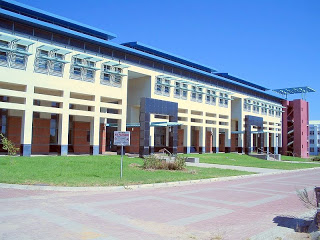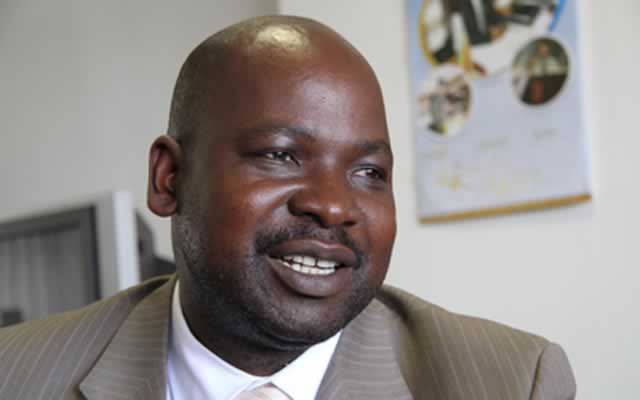ZRP, Nust DNA tie-up


Mashudu Netsianda Senior Reporter
THE National University of Science and Technology (Nust) has commissioned a revolutionising $500,000 DNA centre which will change the way police investigate crime and speed-up paternity testing.Nust says the DNA centre – thought to be one of only three such facilities in Zimbabwe – will primarily be used for research on the genetic diversity of the Zimbabwean population, but the university is keen to tie-up with the Zimbabwe Republic Police to help them solve major crimes like rape and murder as well as identify badly-decomposed bodies.
The ZRP does not have a crime lab and prosecutes crimes without the benefit of DNA – which can be used to clear or convict suspects based on crime scene evidence testing. For instance, semen left on a rape victim can be tested to generate a DNA profile which can be compared to those of suspects, eliminating the chances of wrongful convictions.
DNA profiles can also be generated from blood, sweat, hairs and body tissue.
Zephaniah Dhlamini, the chairman of the Department of Applied Biology in Biochemistry at Nust, told The Chronicle that they were keen to find legal ways of helping the police in solving crime, and one such method was to keep a DNA database of every convicted offender for future comparison when new crimes are committed.
“This will help in databasing all criminals so that their DNA is stored for future references. If a crime is committed in certain areas, they can do a check on the evidence that’s found at the crime scene or on the victim and find a match,” said Dhlamini. “It’s unfortunate that some innocent people are rotting in jail for crimes they didn’t commit, and this facility comes in handy under such circumstances.”
He said the Nust-Applied Genetic Testing Centre would also be able to do paternity testing in court cases where the parentage of a child is disputed by the father.
“Disputed paternity cases can also be solved by doing DNA tests and we can do them locally unlike before where samples had to be taken to places like South Africa, attracting a high cost,” said Dhlamini.
Dhlamini said they would soon engage the ZRP, lawyers, doctors, lawmakers, magistrates and prosecutors to sell them the benefits of DNA testing and forensic science in the criminal justice system. “We need to train police on how to collect evidence for DNA testing, this is a great weapon for any crime fighter,” he said.
The Officer Commanding Bulawayo Police, Senior Assistant Commissioner Stephen Mutamba, yesterday said they were not aware of the new DNA facility, but added that the ZRP was not averse to new crime-fighting tools.
“We’re not aware of the existence of the Nust DNA centre. In fact, we would be much obliged to approach them for their services, particularly when it comes to serious crimes because of its close proximity,” said Snr Asst Comm Mutamba.
DNA is the complex chemical that carries genetic information. DNA is contained in chromosomes, X-shaped objects which are found in the nucleus of most cells. They consist of long strands of a substance called deoxyribonucleic acid, or DNA for short.
A section of DNA that has the genetic code for making a particular protein is called a gene. The gene is the unit of inheritance, and each chromosome may have several thousand genes. We inherit particular chromosomes through the egg of our mother and sperm of our father. The genes on those chromosomes carry the code that determines our physical characteristics, which are a combination of those of our two parents.
It is not possible for two individuals who are not related by ancestry to have matching DNA profiles.
Dhlamini said the equipment at their DNA facility had been sourced from the United States, the UK and Japan.
“The services that are on offer include human identification and basic individual profiling whereby we give you your DNA profile and analyse it. This information is important as it makes it easier to identify a person’s remains in the event that they face a violent death and cannot be positively identified by merely looking at them,” said Dhlamini.
“People can also be involved in plane crashes or disasters where they’re burnt to death and it becomes difficult to identify them. So, when we have their DNA profiles, we can just retrieve the information and get a sample from the charred remains and match it to what we have,” he said.
“You’ll find that as individuals we’ve unique DNA that separates each individual from the other. We are undertaking a research study at our centre to establish the Zimbabwean population’s allelic frequencies (genetic diversity at the individual, population, and species level) that will help us generate data for statistical analysis. We’re therefore inviting people to come for profiling on a voluntary basis so that we’ve a copy of their DNA profile,” said Dhlamini.
The facility is also able to deliver high quality services in human, livestock and pathogen identification through DNA typing.
“We can also do DNA analysis on bones which are even more than 100 years old. The same technology can be used to test for genetically modified organisms (GMO) in crops as well as HIV viral loads and other viruses that affect humans,” said Dhlamini.
“Stud breeding of bulls and pedigree horses and dogs can also be profiled and their purity authenticated. We can also use it to authenticate the composition of processed food.”
Dhlamini said it would cost $100 for individuals to have their DNA sampled. Once sampled, a person will have their DNA certificate containing all the necessary information about them. It takes about three hours to generate a profile.











Comments